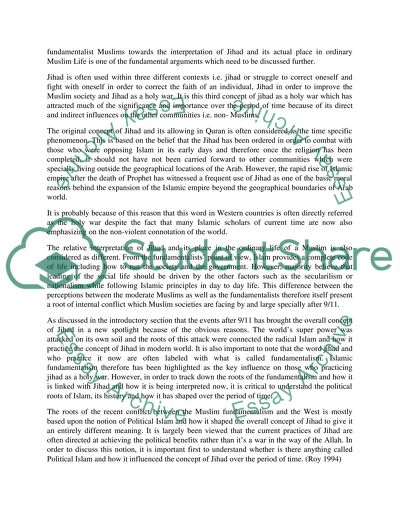Cite this document
(“Jihadism constituted a radical break from earlier traditions of Essay”, n.d.)
Retrieved from https://studentshare.org/environmental-studies/1407791-tjihadism-constituted-a-radical-break-from-earlier
Retrieved from https://studentshare.org/environmental-studies/1407791-tjihadism-constituted-a-radical-break-from-earlier
(Jihadism Constituted a Radical Break from Earlier Traditions of Essay)
https://studentshare.org/environmental-studies/1407791-tjihadism-constituted-a-radical-break-from-earlier.
https://studentshare.org/environmental-studies/1407791-tjihadism-constituted-a-radical-break-from-earlier.
“Jihadism Constituted a Radical Break from Earlier Traditions of Essay”, n.d. https://studentshare.org/environmental-studies/1407791-tjihadism-constituted-a-radical-break-from-earlier.


